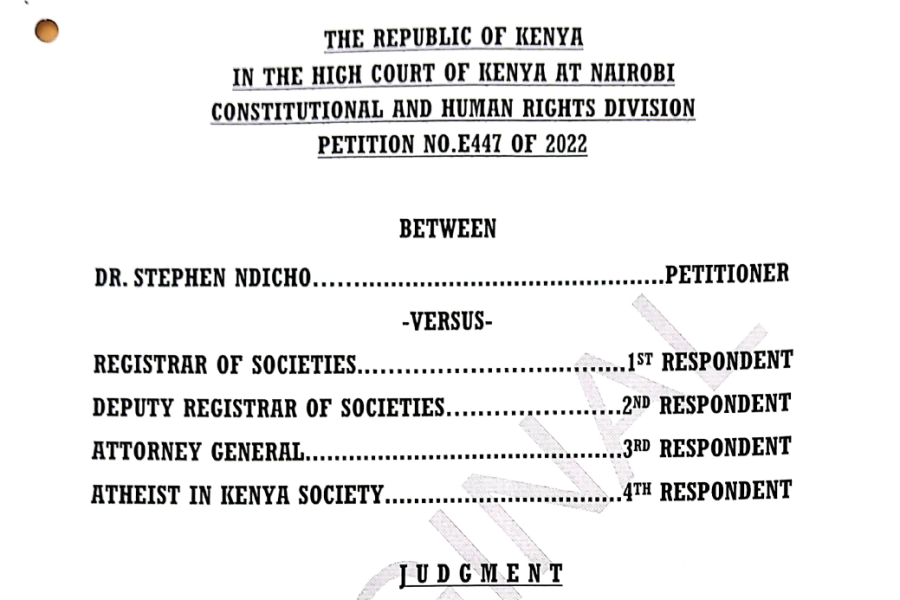


The decision follows a protracted legal battle that began in 2022, when Bishop Stephen Ndichu petitioned the court to revoke Atheists in Kenya Society’s registration on the basis that the organization’s registration and continued operation violate several articles of the Kenyan Constitution.
In reaching this decision, Judge Mugambi opined that holding non-theistic or atheistic views is protected under Articles 8 and 32(4) of the Constitution, and that the petition was therefore without merit.

Executive Committee of AIK at Cafe Safari Nairobi – December 2021
Since its establishment Atheists in Kenya Society has worked to provide a community for atheists and foster open, rational, and scientific examination of the universe as well as advocate on the basis of humanist principles. They have sought to create acceptance of atheists living in Kenya.
Founded in 2013, Atheists in Kenya Society is an Associate Member of Humanists International. The organization became the first non-religious society to be registered under the Societies Act (CAP108) in February 2016 after its initial rejection. However, only two months later, the organization’s registration was suspended after the then-attorney general, Prof. Githu Muigai cited complaints from religious groups. The organization’s founder and President, Harrison Mumia, challenged their suspension at the High Court, succeeding in the reinstatement of society’s status in 2018.
While the 2018 ruling refrained from addressing whether atheist beliefs benefit from the protections afforded to religious beliefs in the Constitution, Judge Mugambi’s ruling makes clear that non-religious beliefs are offered equal protection under the law, underscoring that:
“In my view, it is a matter of conscience for any person to decide whether to believe in anything or be religious for if it was not the case, it will translate into people being compelled to believe in or practice what is actually against their conscience. The right of atheist (sic) should thus be protected under Article 32 […] it would be unconstitutional to impose a belief in any person if that person does not endorse as this amounts to theocratic tyranny which our constitution does [not] support as is made clear in Article 8 which provides that “there shall be no state religion” and Article 32 (4) which states that “A person shall not be compelled to act, or engage in any act, that is contrary to the person’s believe (sic) or religion.””